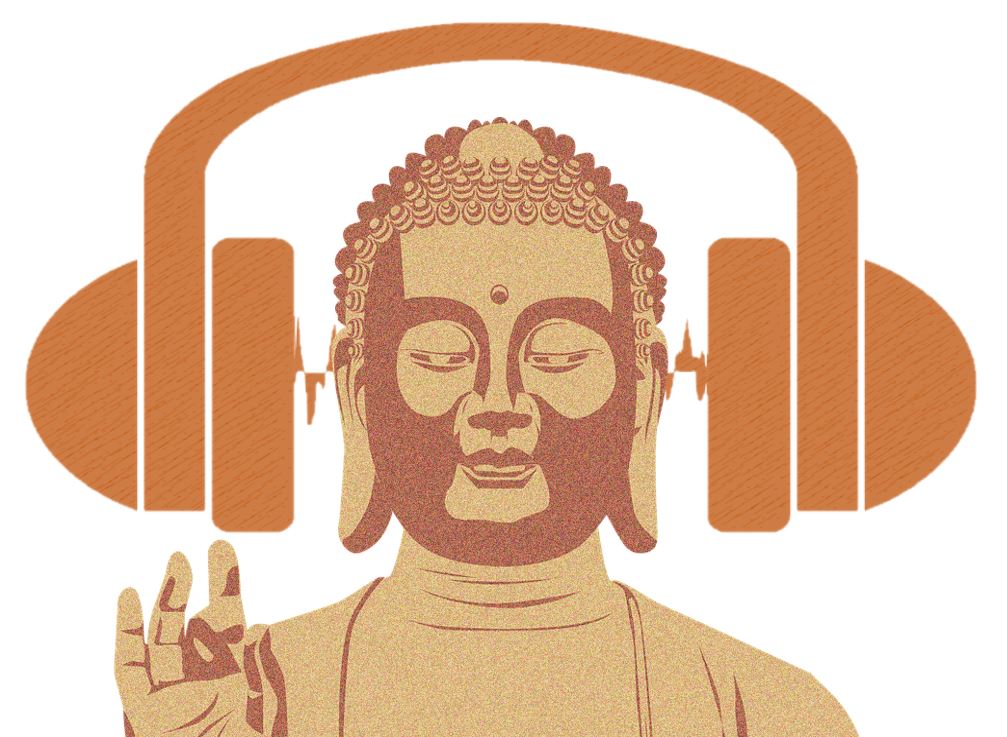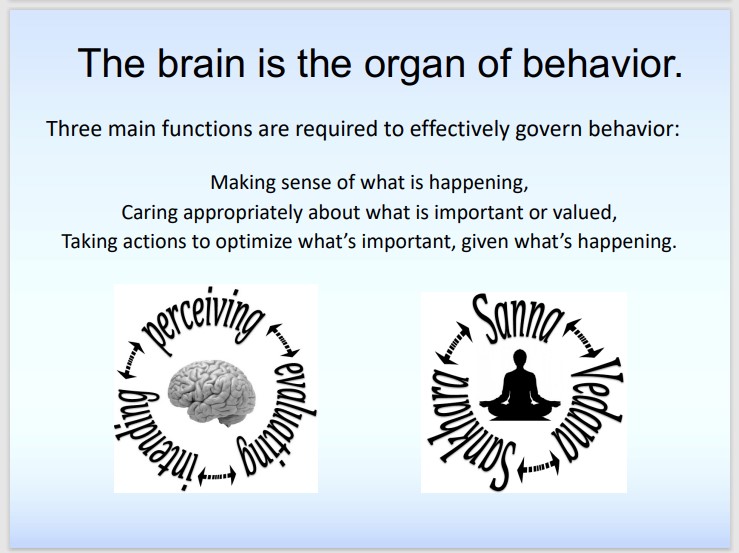
Schadenfreud is defined as “taking delight in another’s misfortune”. And if we are honest with ourselves, we have all “enjoyed” our own schadenfreuden moments, especially when someone we dislike experiences an unfortunate turn of events. Inexplicably, we can also experience schadenfreud when a friend experiences some bad luck. Schadenfreud also makes an appearance when someone else finds great happiness in their personal or professional lives and we haven’t. In this instance, we believe the good fortune of others deprives us of our own… as if there is only so much joy to go around.
Schadenfreud is also the opposite — the “far far enemy” — of the third brahmavihara, mudita. Mudita is described as “joy in the happiness of others.” This state of joy in the happiness of others is also called “Freudenfreud”.
What social psychological research reports is that schadenfreud exacerbates depression and anxiety for those who frequently find themselves in this state of mind. Freudenfreud does the opposite. Not succumbing to schadenfreud isn’t easy since in our duplicitous world it is a tool to capture interest. It is used to sell us everything, from movies to goods and services.
Tonight we will learn a few practical methods for decreasing schadenfreud and elevating mudita or freudenfreud in our lives, thus increasing our own contentment and ease.

Women’s voices have brought inspiration and wisdom to our Vipassana/Insight tradition since the time of the Buddha. Our tradition has not always honored the contributions of their teachings, and in some cases, sadly, has put up roadblocks to full participation by women as teachers and practitioners. In this presentation, Rich will let Buddhist women speak through their own words, as presented in several sources: Leaving It All Behind (by Bhikkhuni Anandabodhi and Bhikkhuni Santacitta), The Hidden Lamp (edited by Florence Caplow and Susan Moon), Discovering Kwan Yin, Buddhist Goddess of Compassion (by Sandy Boucher), and others. The presentation will be enriched by poetry, from the verses of the enlightened women of the Buddha’s time (the Therigatha) to contemporary poets.
A list of the readings mentioned in this recording are included below:
- 2023 Women’s History Month Theme: “Celebrating Women Who Tell Our Stories”
- Nona Olivia, editorial, Sati Journal, 2014, page 2
- Therigatha, Ambapali, Disciples of the Buddha, page 301
- Anoja Seeks the Self, The Hidden Lamp, page 20.
- Discovering Kwan Yin, Sandy Boucher, page 5
- Leaving It All Behind, Brahmavihara, page 44, Mitta, page 59
- Lovingkindness, Sharon, The Gift of Equanimity, page 144
- Pay Attention for Goodness Sake, Sylvia, Determination: The Powers of Practice, page 211
- Poems:
- Jane Kenyon, Otherwise
- Edna St. Vincent Millay, Time Does Not Bring Relief
- Jacqueline Suskin, The Relief of our Endless Becoming
- Rosemerry Wahtola Trommer, Never the Same
- Ginger Clarkson, Asking Forgiveness
How Perception and Memory Shape Experience – converging views from neuroscience and early Buddhist teachings


Many of the Buddha’s teachings have close parallels in modern neuroscience. This talk will explore these parallels, with a particular focus on how perception and memory shape experience. Early Buddhist teachings on perception and emptiness point to insights that can be valuable supports for dharma practice. Similar insights emerge from modern studies of the perceptual circuits of the brain. Neuroplasticity, or how the brain is changed by experience, is viewed by neuroscientists as the basis of all forms of memory. Early Buddhist and Yogacara teachings on karma and the “storehouse” (alaya) emphasize how this principle affects our practice and well-being. A similar perspective underlies the effectiveness of many modern psychotherapies.

The 37 wings of awakening are the set of interrelated mental qualities that cultivate Right View and lead to the cessation of suffering. The five spiritual faculties are listed twice, both as ‘faculties’ and as ‘powers’. we will talk about what the spiritual faculties are and how they can be developed into the five spiritual powers.
The Buddha represents the human potential to awaken that we all share. During this day of practice together, we will look at ways we can take inspiration from the life of the historical Buddha, as presented in the early discourses or suttas, as we travel on our own spiritual journey. We’ll look at some of the practices the Buddha tried before finding the path of awakening, as well as what led to his breakthrough, his decision to teach, and some of the important teachings he offered throughout his teaching career. Instructions will be offered in Mindfulness of Breathing, which was one of the Buddha’s favorite meditation practices. This day included sitting and walking instructions, dharma talks, and discussion/Q&A. Suitable for both beginning and more experienced meditators.
Before he discovered the path to awakening, the Buddha tried various ascetic practices in accord with the beliefs of his time in ancient India. One belief was that “happiness cannot be gained through happiness, but instead requires going through (self-inflicted) pain,” according to Bhikkhu Analayo in his book A Meditator’s Life of the Buddha. However, at a certain point the Buddha saw that he was not achieving his goal of liberation, so he began looking for another way. This led him to a realization that certain types of wholesome joy or happiness related to meditation and renunciation might lead in the direction of awakening. The Saturday, February 25 daylong retreat will also touch on this theme and expand on it, but both events are standalone; you may attend one or both. Bhikkhu Analayo’s aforementioned book A Meditator’s Life of the Buddha (Windhorse Publications, 2017) is one of the main inspirations for this theme.

Clear Comprehension, or “Clear Knowing,” is the Historical Buddha’s four (4) step process for making good choices. It can be used as a helpful tool during meditation and as a powerful resource in every day decision making. This evening will explore each step from a practical, hands-on perspective using examples from both meditation practice and daily life. (The subject matter of this evening is appropriate for all stages of practice.)
The Talk explores ways of re-languaging and accessing the spirit of Devotion when it doesn’t come naturally, the ‘near misses’ of Devotion and how to untangle ourselves from them, and ways to cultivate the richness Devotion in our daily lives.
Visit Us
SIM meets online and in-person at the Sacramento Dharma Center
What is Dana?
Dana is a Buddhist word that means generosity or heart. Nearly all Sacramento Insight Meditation activities are offered on a dana (donations) basis. This means our programs are sustained by the generosity of instructors in offering teachings freely and on the generosity of students and members of the meditative community in the form of financial support, service and participation in events. Practice dana, please support our Sangha. DONATE NOW
